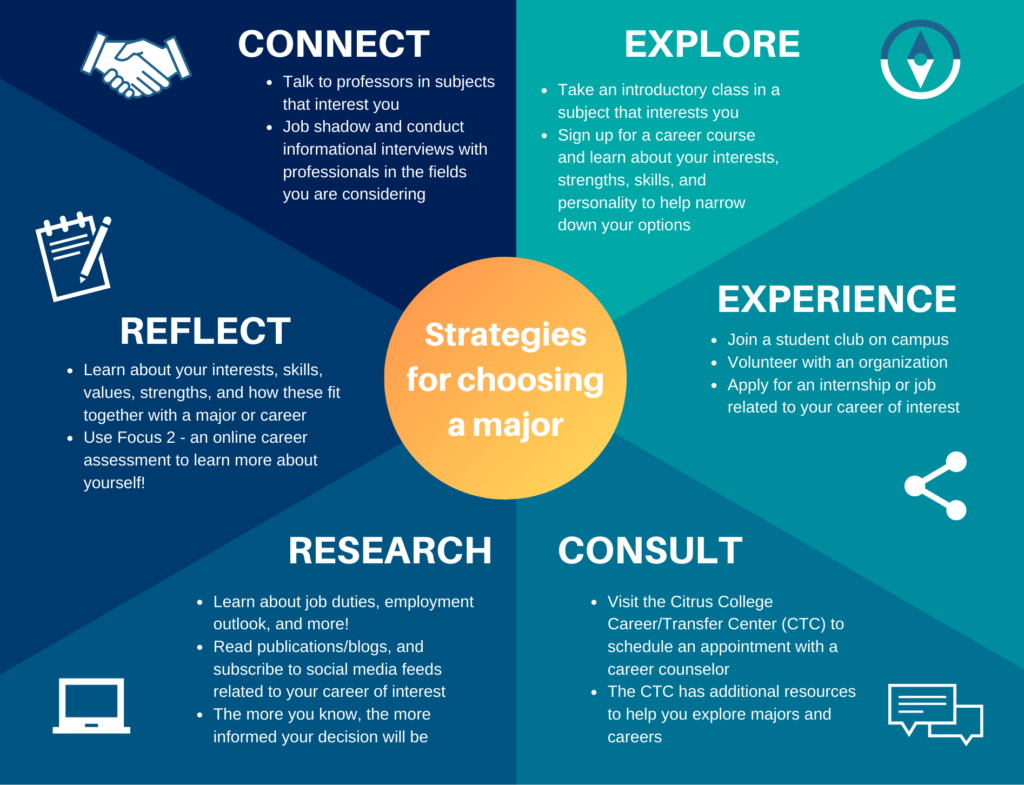1. Introduction
In today’s fast-paced and competitive job market, finding the right career path can be a daunting task. Many individuals struggle with the dilemma of balancing their passions and interests with the need for practicality and financial stability. This is where the expertise of career counselors becomes invaluable. Career counselors specialize in guiding individuals through the complex process of career decision-making, helping them navigate the crossroads of passion and practicality.
In this blog, we will explore insights from career counselors on how to find the perfect balance and make informed career choices. Join us as we delve into the world of career counseling and discover the keys to a fulfilling and successful professional journey.

2. The importance of balancing passion and practicality in your career
Finding the right balance between passion and practicality in your career is crucial for personal fulfillment and long-term success. While it is important to follow your passion and pursue work that brings you joy and fulfillment, it is also essential to consider practical factors such as financial stability, job market demand, and growth opportunities.
Choosing a career solely based on passion without considering practicality can lead to financial struggles and limited career options. On the other hand, focusing only on practicality without considering your passion can leave you feeling unfulfilled and unengaged in your work.
Career counselors understand the significance of striking this balance and can provide valuable guidance in aligning your passions with practical considerations. They can help you assess your skills, interests, and values, and explore potential career options that successfully integrate both passion and practicality.
In the next section, we will delve deeper into the specific strategies and approaches that career counselors suggest for achieving this delicate balance. Stay tuned as we uncover the practical steps you can take to find a career that captures your passion while ensuring long-term stability and success.
3. Seeking guidance from career counselors
Seeking guidance from career counselors is an invaluable step in navigating the crossroads between passion and practicality. These professionals have deep expertise in understanding the complexities of the job market and can provide personalized insights tailored to your unique circumstances.
Career counselors can help you explore your passions and identify potential career paths that align with them. They can assist you in assessing the market demand and growth opportunities for these paths, ensuring that your choices are not only fulfilling but also financially viable.
Moreover, career counselors possess a wealth of knowledge about the skills and qualifications required for various careers. They can help you identify any skill gaps and devise strategies for acquiring them, whether through further education or specialized training programs.

By collaborating with a career counselor, you gain access to a wealth of resources and support to help you make informed decisions. Whether it’s offering resume and interview tips or connecting you with networking opportunities, their guidance can prove instrumental in your journey towards finding the right balance between passion and practicality.
In the following section, we will delve into the important questions you should ask yourself when considering possible career paths. Stay tuned for valuable insights that will help you make informed decisions and pave the way for a fulfilling career.
4. Understanding the role of self-assessment in making career decisions
Understanding your own strengths, interests, and values is crucial when making career decisions. Self-assessment plays a significant role in helping you gain clarity and align your passion with practicality. By evaluating your skills, personality traits, and motivations, you can identify the career paths that are most likely to bring you fulfillment and success.
Self-assessment tools provided by career counselors can be invaluable in this process. These tools often include personality assessments, skills inventories, and interest assessments. By taking these assessments, you can gain valuable insights into your unique qualities and how they relate to various career options.

Additionally, reflecting on your values and what you prioritize in a career can guide your decision-making. Are you motivated by financial stability, creative expression, or making a difference in the world? Understanding your core values can help you prioritize your preferences and make choices that align with your long-term goals.
Self-assessment is an ongoing process that requires introspection and reflection. By understanding yourself and your unique qualities, you can navigate the crossroads between passion and practicality with confidence and make informed career decisions that lead to a meaningful and balanced professional life.
5. Exploring diverse career options
Exploring diverse career options is an essential step in finding the right balance between passion and practicality. Once you have gained clarity through self-assessment, it is time to broaden your horizons and explore the different career paths that align with your interests and goals.
Career counselors can provide valuable resources and guidance in this process. They can help you identify industries and professions that align with your skills, values, and passions. Researching different career options through online resources, informational interviews, and job shadowing can also give you a better understanding of the day-to-day responsibilities and requirements of various roles.

It is important to keep an open mind and consider both traditional and non-traditional career paths. Sometimes, the most fulfilling and rewarding careers are found in unexpected places. By exploring diverse options, you increase your chances of finding a career that combines your passion with practicality.
In the next section, we will discuss the importance of networking and utilizing professional connections to gain insights into different career paths. Stay tuned!
6. Developing a strategic plan for achieving your goals
Developing a strategic plan for achieving your career goals is an essential component of successfully navigating the crossroads between passion and practicality. Once you have explored diverse career options and identified the industries and professions that align with your interests and goals, it is time to create a roadmap for your professional journey.
Start by setting clear and specific career goals. What do you want to achieve in the short term and the long term? This could include specific job titles, industries, or even entrepreneurial endeavors. Next, break down these goals into actionable steps. What skills, experiences, or qualifications do you need to acquire to reach your desired destination? Create a timeline and establish benchmarks to keep yourself accountable.

Networking and utilizing professional connections is crucial at this stage. Reach out to individuals who are already working in your field of interest, attend industry events, and join relevant professional associations. These connections can provide valuable insights, mentorship, and even potential job opportunities.
Stay focused and adaptable as you work towards your goals. Remember that plans may change, and it is important to be open to new opportunities that may arise. By developing a strategic plan and leveraging your professional network, you increase your chances of finding a career that blends your passion with practicality.
In the next section, we will discuss the importance of continuous learning and skill development in today’s ever-evolving job market. Stay tuned!
7. Evaluating the potential risks and rewards of pursuing your passion
When it comes to navigating the crossroads between passion and practicality, it’s important to consider the potential risks and rewards of pursuing your passion. While following your passion can bring fulfillment and satisfaction, it may also come with its challenges and uncertainties.
Before making any major career decisions, take the time to evaluate the potential risks involved. Consider factors such as financial stability, job security, and the level of competition in your chosen field. Are you willing to take on these challenges and make the necessary sacrifices to pursue your passion? It’s crucial to have a realistic understanding of the potential obstacles you may face along the way.
At the same time, don’t forget to weigh the potential rewards of following your passion. Think about the personal satisfaction, joy, and sense of purpose that can come from doing work that aligns with your interests and values. Take into account the potential for growth, creative fulfillment, and the opportunity to make a positive impact in your chosen field.
Finding the right balance between passion and practicality requires careful consideration of both the risks and rewards. In the next section, we will delve into strategies for managing those risks and maximizing the rewards as you pursue your career goals. Stay tuned for more valuable insights!

8. Seeking mentorship and networking opportunities
Seeking mentorship and networking opportunities can be invaluable in navigating the crossroads between passion and practicality. Mentors can provide guidance, support, and perspectives from their own experiences, helping you make informed decisions about your career path.
Start by identifying professionals in your chosen field who align with your passion. Reach out to them and express your interest in connecting and learning from their expertise. Attend industry events, seminars, and workshops to meet like-minded individuals who share your passion. Networking allows you to build relationships and gain insights from professionals who have successfully balanced their passion with practicality.
By surrounding yourself with mentors and a strong network, you can gain valuable advice and expand your opportunities. They can offer insights on how to navigate the challenges and uncertainties you may encounter while pursuing your passion. Stay connected with this blog series, as we will discuss how mentorship and networking play a pivotal role in balancing passion and practicality in your career journey.
9. Taking calculated steps towards your ideal career path
Taking calculated steps towards your ideal career path is crucial in balancing passion and practicality. Once you have identified potential mentors and built a strong network, it is time to start mapping out your journey.
Start by researching the job market and the skills that are in demand in your chosen field. This will help you assess the practicality of pursuing your passion and identify any gaps in your knowledge or experience. Consider taking courses or obtaining certifications that can enhance your skills and make you more marketable.

Next, set clear and achievable goals for yourself. Break them down into smaller milestones to make them more manageable. This will help you stay focused and motivated throughout your career journey.
Remember that it is okay to start small and work your way up. Gain experience through internships, volunteer work, or part-time positions in your desired field. This will not only build your skills but also allow you to test the waters and see if your passion aligns with the reality of the job.
Taking calculated steps towards your ideal career path will provide you with a solid foundation and increase your chances of success. Stay tuned for the next section, where we will discuss the importance of self-reflection in finding your career balance.
10. Conclusion: Finding the right balance between passion and practicality
Finding the right balance between passion and practicality is crucial when navigating your career path. While it may seem challenging, taking calculated steps and staying focused can help you achieve success.
Throughout this blog series, we have emphasized the importance of researching the job market, identifying skills in demand, and setting clear goals for yourself. These actions will help you assess the practicality of pursuing your passion and fill any knowledge or experience gaps.
Additionally, gaining hands-on experience through internships, volunteer work, or part-time positions will provide valuable insights into the reality of your desired field. This will help you determine if your passion aligns with the day-to-day responsibilities of the job.
Lastly, self-reflection plays a significant role in achieving career balance. Take the time to assess your values, interests, and strengths, and consider how they align with your chosen career path. This self-awareness will guide you in making informed decisions and finding fulfillment in your work.
Remember, finding the right balance between passion and practicality is a journey. Stay committed, adapt to changes, and never lose sight of your ultimate goal.



